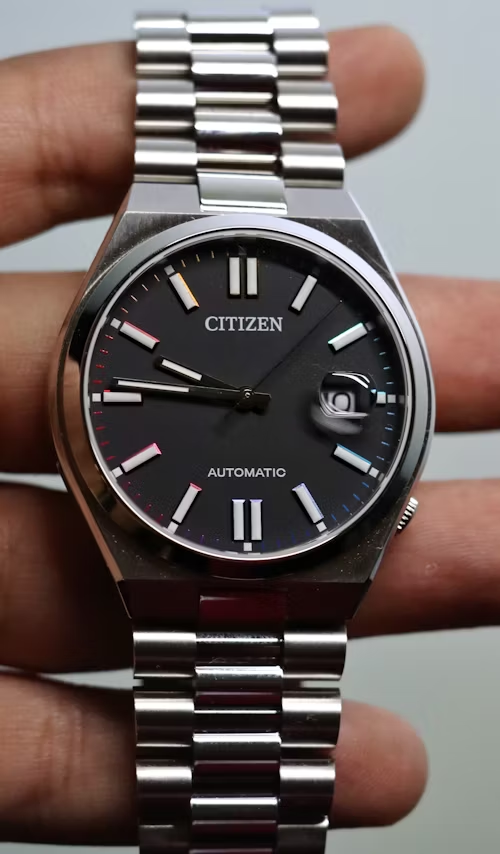Embracing Sustainable Living: A Guide to Vintage Electronics, Zero-Waste Shopping, and Festive Decor

In today's world, sustainability is more than just a buzzword; it's a lifestyle choice that is gaining traction across the globe. More people are recognizing the impact of their daily choices on the environment and are actively seeking ways to minimize this impact. From adopting zero-waste grocery shopping habits to choosing sustainable festival and holiday decor, there are numerous ways to contribute to a healthier planet. This blog post explores how you can incorporate zero-waste products, vintage electronics, and eco-friendly decor into your lifestyle, ensuring that you live in harmony with the environment while enjoying the richness of life’s celebrations.
Festival and Holiday Decor: Celebrating Sustainably
Decorating for festivals and holidays is a cherished tradition in many cultures, but it often involves a lot of single-use items and wasteful practices. However, with a bit of creativity and intent, you can transform your festive decor by adopting more sustainable practices.
- Use Natural Elements: Incorporate items such as pinecones, branches, leaves, and flowers into your decor. These can be composted after use, reducing waste.
- Invest in Reusable Decor: Opt for decorations made from durable materials like metal, wood, or glass that can be reused year after year, rather than purchasing single-use plastic items.
- DIY Decorations: Engage in making your own decor items. This not only reduces waste but also adds a personal touch to your celebrations. Use scrap materials, old fabrics, and upcycled items to create unique decorations.
- LED Lights: Choose LED lights for holiday lighting. They are more energy-efficient and have a longer lifespan than traditional bulbs.
By choosing sustainable options, you not only reduce your ecological footprint but also create a more authentic and personalized festive atmosphere.
Vintage Electronics and Collectibles: Nostalgia with a Lower Impact
Vintage electronics are not just about nostalgia; they also represent a sustainable choice in our throwaway culture. Collecting and using vintage electronics can help reduce e-waste, one of the fastest-growing waste streams globally.
- Embrace the Old: Vintage items like radios, turntables, and early computers can be functional decorative pieces, giving your space a unique retro flair.
- Repair and Reuse: Learning how to repair and maintain older electronics can be a rewarding hobby that also extends the life of these devices.
- Community Events: Participate in or organize swap meets and fairs where you can trade or purchase vintage electronics. This not only supports your local community but also prevents older items from ending up in landfills.
- Quality over Quantity: Older items were often built to last, which is contrary to the planned obsolescence common in today's manufacturing. Using and valuing these older technologies can shift consumer habits towards more sustainable practices.
Collecting vintage electronics not only satisfies the nostalgia but also contributes to a sustainable future by minimizing waste and encouraging the reuse of products.
Zero-Waste Grocery Shopping: Transforming the Way We Buy Food
Zero-waste grocery shopping is a pivotal component of a sustainable lifestyle. This approach focuses on reducing packaging waste and encouraging the consumption of fresh, local, and unpackaged products.
- Bring Your Own Containers (BYOC): Use your own jars, bottles, and bags when shopping. Many stores offer bulk items that can be purchased without packaging.
- Choose Local and Organic: Buying local not only reduces the carbon footprint associated with transportation but also supports local economies. Organic products minimize the impact on the environment by avoiding pesticides and chemicals.
- Plan Your Purchases: Planning helps in buying only what you need, reducing food waste and unnecessary purchases.
- Composting: For the unavoidable waste like peels and scraps, composting provides a way to return nutrients back to the earth.
Adopting zero-waste grocery shopping habits can significantly reduce your environmental impact, promote local economies, and lead to healthier lifestyle choices.
Choosing Zero-Waste Products for Everyday Life
Zero-waste products aim to eliminate waste at all stages of a product's lifecycle. Choosing these products involves looking for items that are sustainably sourced, designed for longevity, and able to be reused, repaired, or recycled.
- Personal Care: Opt for products like bamboo toothbrushes, refillable soaps, and shampoos, or DIY your own cosmetics and toiletries.
- Household Items: Select durable goods made from natural materials for home use, such as wooden brushes, metal or glass storage containers, and natural fiber textiles.
- Reusable Everyday Items: Replace single-use plastics with reusable alternatives like cloth shopping bags, reusable water bottles, and metal straws.
- Educate and Advocate: Share your zero-waste journey with others and advocate for systemic changes that support waste reduction.
By incorporating zero-waste products into your daily routine, you not only minimize your personal waste but also contribute to a larger movement towards sustainability.
In conclusion, whether you are decorating your home for the holidays, enjoying vintage electronics, grocery shopping, or choosing everyday products, there are sustainable choices that can significantly reduce your environmental footprint. Embracing these practices not only benefits the planet but also enriches your life with unique experiences and a deeper connection to the community and the world around you. Remember, every small change contributes to a bigger difference.



